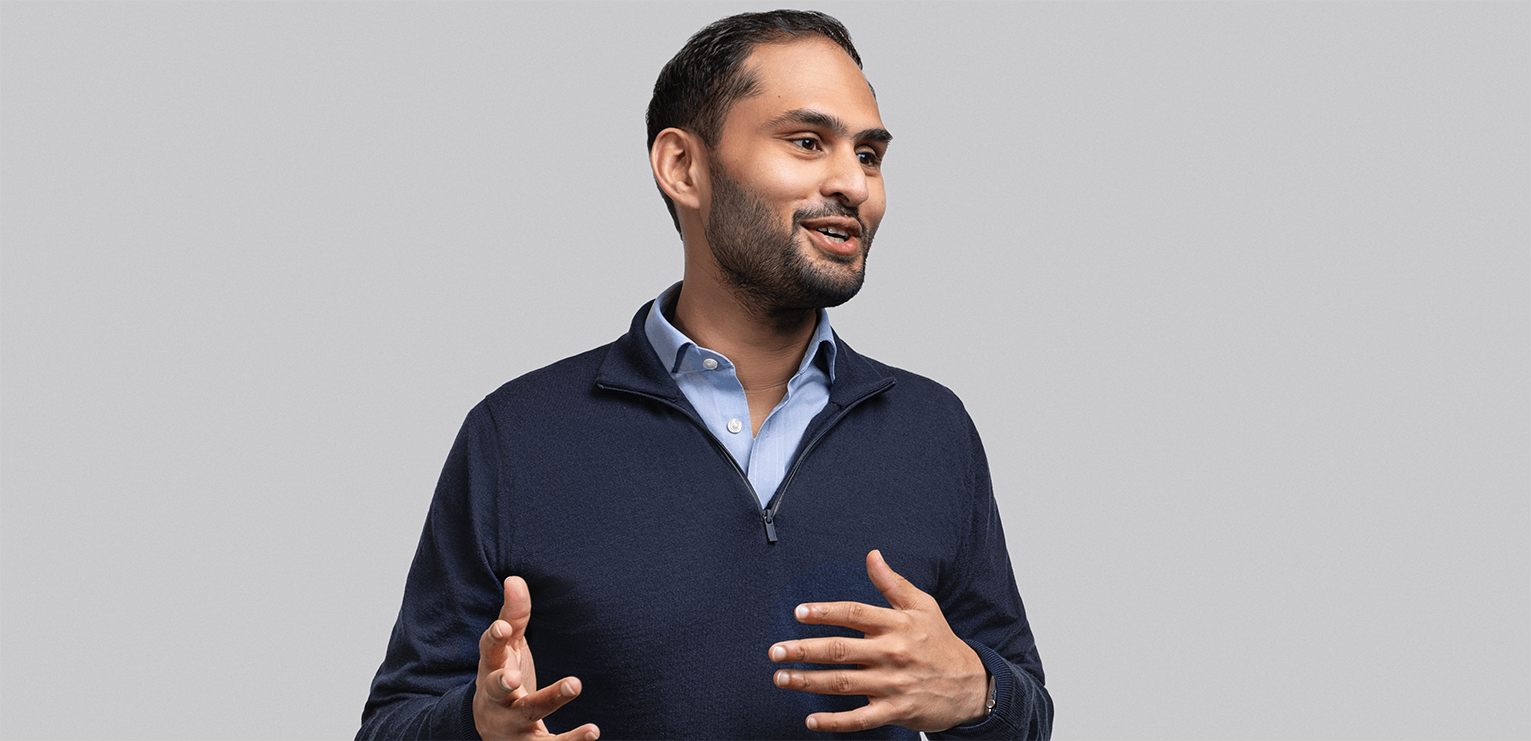
Overview
Sarthak joined SBIA’s Mumbai office in 2019. His investment interests center on entrepreneurs using technology to make life—either an individual’s or a company’s—more efficient, more convenient, and more rewarding. Sarthak holds a BS in Management Science & Engineering from Stanford University and an MBA with Distinction from Harvard Business School. Prior to joining SBIA, he worked as an early-stage investor at Matrix Partners and as a consultant at McKinsey & Company.
Region
Q&A
02 —
Why did you join SBIA?
After years of investing in disparate Indian-based ventures, SoftBank set up an office in Mumbai in late 2018. I had always admired SoftBank and Masa’s vision for a technology-led future. For ambitious entrepreneurs around the world, the Vision Fund was there, ready to provide the support needed to create a future driven by technological innovation. When the opportunity to be a part of a small team to further that mission in India presented itself, it was a simple decision.
02 —
What sets SBIA apart from other investment firms?
We like to build relationships with founders early, right after their Series A/B round of funding. Given the size of our investments, founders often wait a few rounds before speaking to us. However, we like to build connections in their journey as early as possible, to introduce ourselves, understand their vision, and appreciate their plans. That way, when they need growth capital, both sides are ready to enter into a long-term partnership.
Having been an early-stage investor, I’ve witnessed the courage and conviction entrepreneurs exhibit when starting a company. That experience has instilled in me a deep sense of respect for entrepreneurs and a responsibility towards their mission.
02 —
What experience has helped shape your perspective on the work you do today?
When I started at Stanford, tech was pulling out of the financial crisis, and campus was bustling with students and alumni starting technology companies. The energy was infectious. Every week someone was making you try a new app, a new game, a new payment product. The next year, I spent the summer learning about investing in China, and it was all about the world of BAT (Baidu, Alibaba, and Tencent). When I would visit India though, it didn’t have the startup infrastructure it has now. Data was expensive, and smartphones were uncommon. Over the past few years, the energy in India’s start-up ecosystem has reminded me of the energy I felt when I first got to the Bay Area.
02 —
What excites you about the investments you’re focused on?
The scale of the opportunity for consumer internet companies to improve the lives of millions in India’s rural and urban areas. If you look around in India, the consumer economy is still largely offline and unorganized. For example, as of 2022, food delivery was only used by about 25 million people in India every month, and even for them, the behavior is limited to ordering once per week. By then, more than 100 million people in China were active users of food delivery at 2 -to -3 times a week. India is still young in its digital journey, there’s so much to play for.
02 —
What’s the best advice you’ve received?
One of my professors asked me whether at the end of any given day, I felt I had either crushed it or had been crushed. He observed that I may tend to think of each day as binary and he advised me instead to think about days in my life as a bell curve. If you place a seemingly extreme day on the curve, there’s a good chance it’ll fall somewhere in the middle. This resonated powerfully with me, and reminding myself of that helps me push through the challenges we all face daily.
02 —
What does good mean to you?
A big part of our work is discovering great founders. A trait I have seen in the best founders is their ownership of a problem and accountability for the solution. The most prolific founders I work with, regardless of how large their companies are, always have time for consumer feedback. That’s what taking real ownership of the mission looks like.